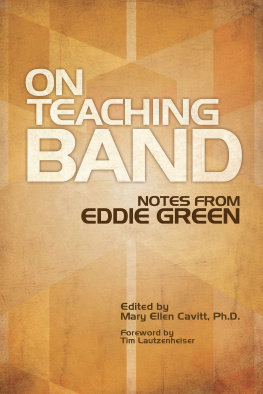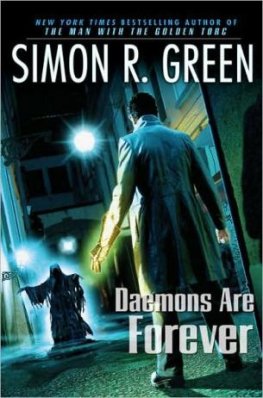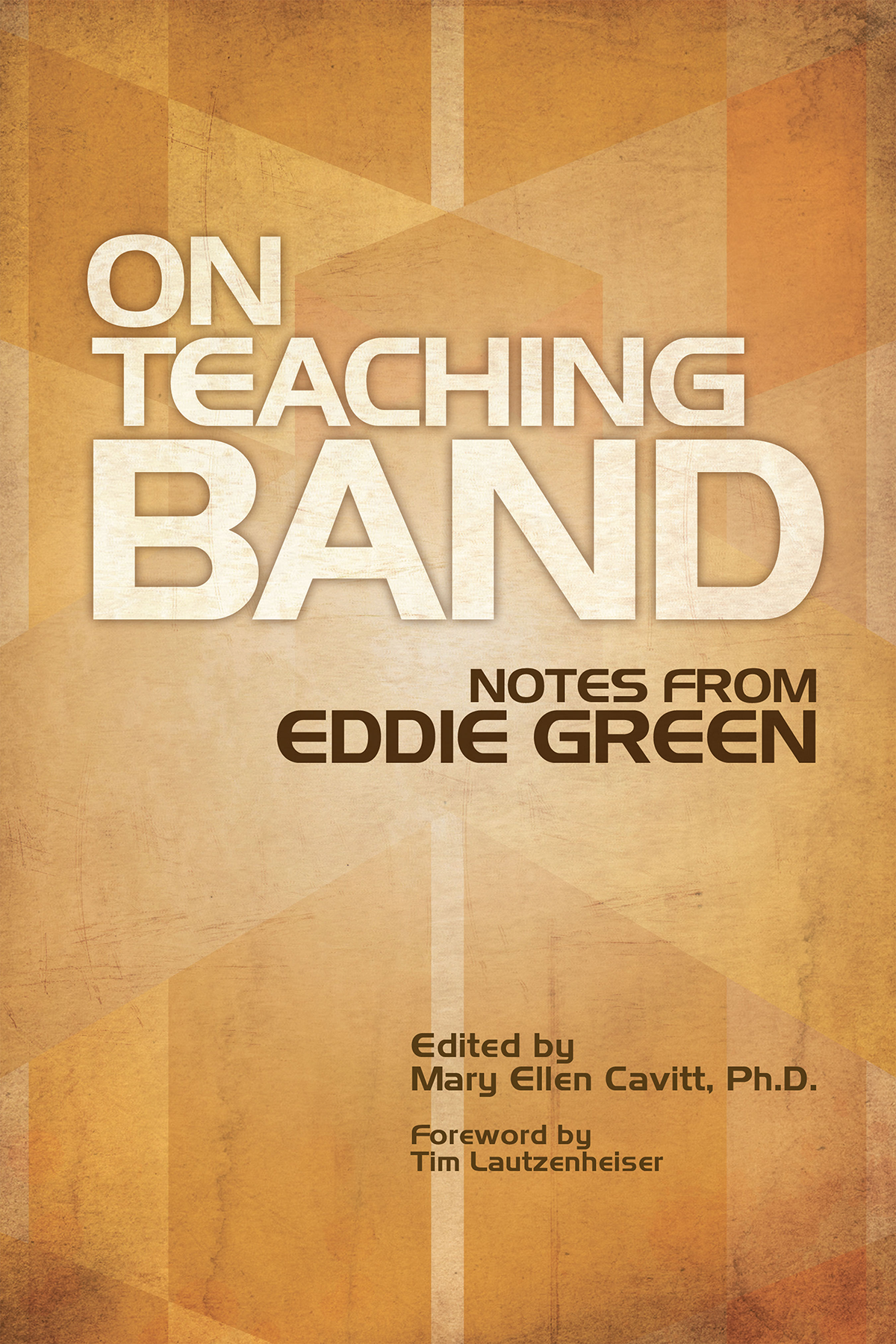All rights reserved. No part of this book may be reproduced in any form or by
who may quote brief passages in a review.
7777 W. Bluemound Road
P.O. Box 13819
Library of Congress Cataloging-in-Publication Data available upon request.
Printed in the U.S.A.
7777 W. Bluemound Rd. P.O. Box 13819 Milwaukee, WI 53213
Table of Contents
Simply put, Eddie Green is a living legend in the band world. There are many in this profession who conduct, teach, compose, arrange, espouse, etc., but there is only ONE Eddie Green and, without question, his name is permanently etched in band history. His trademark teaching is evidenced in the ever-growing legion of loyal disciples who represent the finest teachers/educators across the nation and around the globe. TEACHING BAND: NOTES FROM EDDIE GREEN represents another of Eddies priceless contributions to the band conducting community; this remarkable book is an anthology of his many years of developing a treasury of tried-and-true signature rehearsal/performance techniques.
By definition, the FOREWORD of a book is written at the request of the author, by a colleague, acquaintance, or personal friend. It often spotlights some interaction between the invited party and the books primary author. With that description in mind, I offer these thoughts:
Mr. Green has long been one of my personal heroes, and it is a privilege and an honor to author this foreword. He is a revered icon who has (literally) given his life to the positive growth and development of musicians both young and old. My initial one-on-one communication with Mr. Green happened in April 1971. I was completing my first year of band directing at Northern Michigan University, and he was the director of bands at Western Michigan University in Kalamazoo, Michigan. A Monday morning phone call offered the following dialogue:
Hi. My name is Eddie Green. Are you the new person directing the Northern Michigan University marching band? Before I could respond, he went on to say, I want you to come to Western Michigan University and be my assistant band director. I am really looking forward to working with YOU. Do you have any questions about the job I can answer for you? (and for those who know Mr. Green, you quickly recognize his cut-to-the-chase, direct approach of exchange.) Before I could formulate any kind of meaningful answer, he said, Think it over then call me backsoon, and he hung up.
After a very serious introspective review of my options, I made the choice to remain at NMU, but I kept wondering (and Im still wondering), WHAT IF?....
Mr. Greens response to my RSVP phone call of REGRET was short-n-sweet: Okay, if thats what you want to do, but I think you are making a mistakea BIG mistake. Tim, we will always be friends, but you and I should be working together. Good luck. (click) The deafening silence that followed will long be remembered, and the echo of WHAT IF? to this day triggers a mysterious unfulfilled inquiry.
Hindsight is always 20/20, and while there are not many regrets in my life, having the opportunity to share the BAND JOURNEY with Eddie Green is a choice I would definitely reconsider; WHAT IF?
Now some four decades later, Mr. Green always greets me with a predictable hug, and then he stands back and says, Tim, I still think you made a big mistakeand Im never going to forgive you for it! We both laugh, and simultaneously my inner voice shouts (for the umpteenth time), What if?
Notes from Eddie Green is an obvious requisite for everyones personal library. The content represents the heart, soul, and wisdom of a gentleman who is a master conductor on the podium and an exemplary teacher in the classroom. He brings a newfound passion to ALL.
There are no WHAT IFs when it comes to Eddie Greens incomparable contribution. He proves: ONE PERSON CAN MAKE A DIFFERENCEand what an incredible difference he has made, and we are ALL the benefactors! BRAVO, BRAVO, BRAVO!
This collection of pedagogical materials and writings is a tribute to Eddie Green, expert band director and instrumental music pedagogue. As a young teacher I began documenting this information to rescue myself (and my students) from deficiencies in my own preparation as a band director. Now, 25 years later, Eddies influence on teachers and instrumental wind music education programs throughout the United States is extensive. His materials are used in numerous school bands, university teacher preparation programs, and instrumental techniques classes.
Eddie Greens life work is of consequence for several reasons. He elevated the importance of and expectations for beginner band pedagogy, and promoted the idea that band directors should continue to teach students how to play their instruments beyond the first year of instruction. He also systematized ensemble rehearsal techniques, created a culture of shared leadership within the rehearsal, advanced mentorship for experienced band directors, and raised the performance standards of wind ensembles in the United States. Most importantly, Eddie Green is the model lifelong learnercurious and continuously evolving.
Eddie is often described as a polarizing figure. He has been portrayed as a musical hero by his students and vilified by those who either dislike him or have little understanding of his methods. His unabashed support of music competitions has been looked upon with disdain by some of his colleagues, while many others have sought out his association. His laissez-faire attitude infuriates some of his opponents. I believe this quote by Winston Churchill best sums up Eddies point of view: You have enemies? Good. That means youve stood up for something, sometime in your life.
Some might describe the sharing of methods and materials as methodolatry and fear that Eddies methods will become the de facto curriculum for instrumental music ensembles. My response is that a good recipe in the hands of a bad chef is still distasteful! A good chef must have a discriminating palate, and a good band director must have a discerning ear and exceptional music skills. Proven methods and materials in combination with pedagogical and musical skills can go a long way.
Eddie Greens methods embrace teaching principles associated with all of the well-known music methods. He believes that we should:
- Teach all studentsall students can learn


















